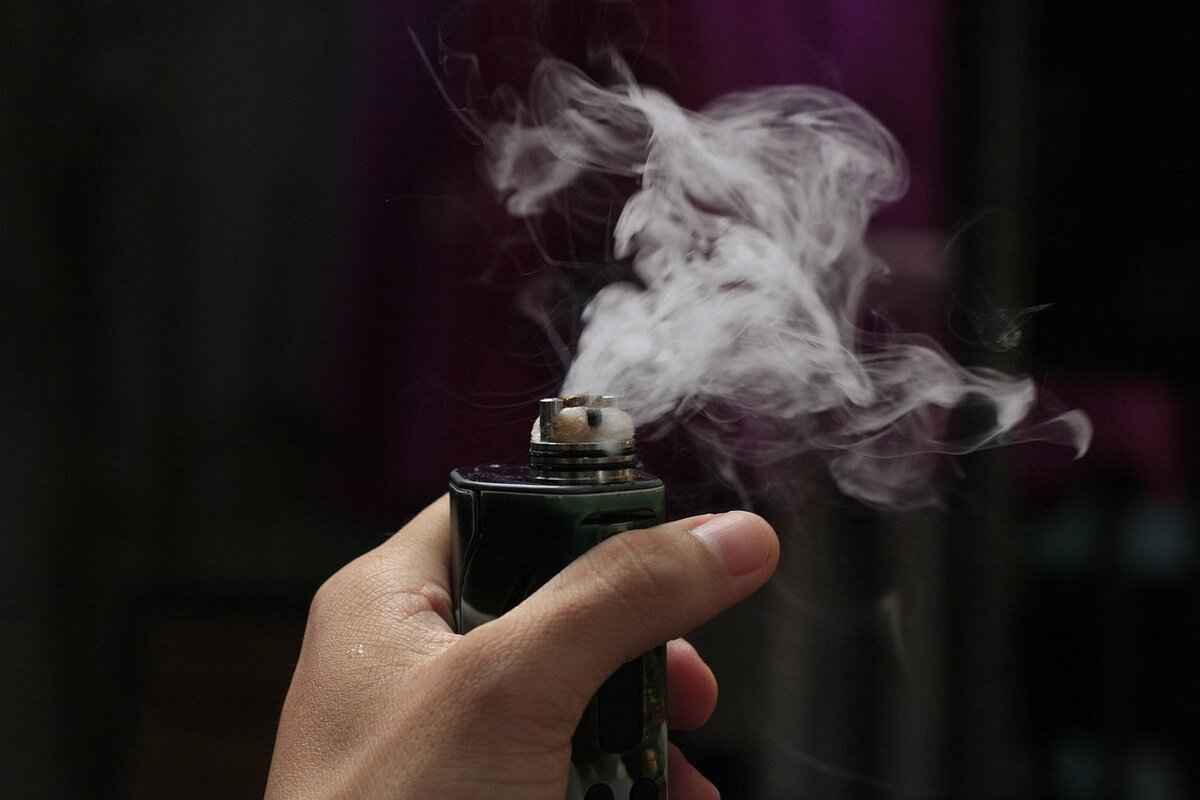This article delves into the potential benefits and risks of vaping as a method for alleviating anxiety and depression, drawing on expert insights and recent research findings.
What is Vaping and How Does it Work?
Vaping refers to the act of inhaling vapor produced by electronic cigarettes or similar devices. These devices heat a liquid that typically contains nicotine, flavorings, and other chemicals, transforming it into an aerosol. Understanding the mechanics of vaping can shed light on its potential effects on mental health.
Can Vaping Reduce Symptoms of Anxiety?
Many individuals report using vaping as a coping mechanism for anxiety. This section examines the evidence supporting these claims and the role of nicotine in managing anxiety symptoms.
Nicotine’s Impact on Anxiety Levels
Research indicates that nicotine may provide temporary relief from anxiety symptoms. When inhaled, nicotine triggers the release of neurotransmitters that can enhance mood and alleviate feelings of stress. However, the long-term effects of nicotine can be counterproductive, potentially leading to increased anxiety over time.
Short-term Relief vs. Long-term Effects
While some users experience immediate calming effects, chronic use can result in heightened anxiety and dependence, creating a cycle that is difficult to break. Understanding this cycle is crucial for those considering vaping as a long-term solution.
Alternatives to Vaping for Anxiety Management
Exploring other methods such as therapy, mindfulness, and exercise can be beneficial for those seeking sustainable anxiety relief without the risks associated with vaping. These alternatives often provide more effective and healthier coping strategies.
Is Vaping Effective for Depression?
The relationship between vaping and depression is complex. While some users may find temporary escape through vaping, it is essential to consider whether it exacerbates depressive symptoms in the long run.
What Are the Risks of Vaping for Mental Health?
Despite potential short-term benefits, vaping poses several risks that can negatively impact mental health, including addiction and physical health consequences.
Understanding Nicotine Addiction
Nicotine is highly addictive, and dependence can lead to withdrawal symptoms that may worsen anxiety and depression, creating a challenging cycle for users. Recognizing the signs of addiction is vital for those considering vaping as a coping mechanism.
Physical Health Consequences of Vaping
The adverse health effects of vaping, including respiratory issues, can contribute to feelings of anxiety and depression, undermining any perceived benefits. It’s important to consider the overall impact on one’s well-being.
What Do Experts Say About Vaping and Mental Health?
Mental health professionals have varying opinions on vaping as a coping strategy. This section compiles expert insights to provide a balanced view.
Clinical Perspectives on Vaping
Experts emphasize the importance of addressing the root causes of anxiety and depression rather than relying on vaping as a quick fix. They advocate for more effective treatment options that focus on long-term mental health.
Research Findings on Vaping and Mental Health
Recent studies provide mixed results on the efficacy of vaping for mental health, highlighting the need for further research to understand its long-term implications. Ongoing investigations may offer clarity on the relationship between vaping and mental well-being.
Are There Safer Alternatives to Vaping?
For individuals seeking relief from anxiety and depression, exploring safer alternatives such as herbal remedies, CBD, or traditional therapies can be more beneficial without the risks associated with vaping.
Herbal Remedies for Anxiety and Depression
Natural remedies like chamomile and valerian root may offer calming effects without the side effects linked to vaping, providing a holistic approach to mental wellness.
Therapeutic Approaches to Mental Health
Cognitive Behavioral Therapy (CBT) and other therapeutic methods have proven effective in treating anxiety and depression, often yielding longer-lasting results than vaping. These approaches focus on developing coping strategies and addressing underlying issues.
In conclusion, while some individuals may find temporary relief from anxiety and depression through vaping, the potential risks and long-term implications warrant careful consideration and consultation with healthcare professionals. Exploring alternative coping strategies may provide a healthier path to mental wellness.

What is Vaping and How Does it Work?
Vaping has become increasingly popular as an alternative to traditional smoking, but many are still unsure about what it truly entails and how it functions. Understanding the mechanics of vaping is essential in evaluating its potential effects on mental health, including anxiety and depression.
Vaping involves inhaling vapor produced by electronic cigarettes (e-cigarettes) or similar devices. These devices work by heating a liquid, often referred to as e-liquid or vape juice, which typically contains nicotine, flavorings, and other chemicals. The process begins when the user activates the device, causing a heating element to vaporize the liquid. This vapor is then inhaled into the lungs, where it is absorbed into the bloodstream.
One of the key components of many e-liquids is nicotine, a substance known for its stimulating effects on the brain. When inhaled, nicotine rapidly reaches the brain, where it binds to receptors that release neurotransmitters like dopamine. This release can create feelings of pleasure and relaxation, which some users may seek out as a way to cope with stress or anxiety.
However, it is crucial to understand that while vaping can provide temporary relief from feelings of anxiety or depression, it is not a long-term solution. The rapid onset of nicotine’s effects can lead to a cycle of dependence, where users feel the need to vape more frequently to achieve the same calming effects.
Compared to traditional cigarettes, vaping is often perceived as a safer alternative. While e-cigarettes do not contain many of the harmful tar and chemicals found in combustible tobacco products, they are not without risks. The long-term health effects of vaping are still being studied, and emerging evidence suggests that it may contribute to respiratory issues and other health problems.
Many individuals report using vaping as a coping mechanism for anxiety and depression. The immediate calming effects of nicotine can be appealing, but research indicates that these effects are often short-lived. Over time, the reliance on vaping can lead to increased anxiety and stress, particularly when users attempt to cut back or quit.
Despite its popularity, vaping poses several risks that can negatively impact mental health. The most significant concern is nicotine addiction. As users become dependent on nicotine, withdrawal symptoms can emerge, which may exacerbate feelings of anxiety and depression. Furthermore, the physical health consequences of vaping, such as lung issues, can contribute to an overall decline in mental well-being.
Experts in mental health stress the importance of addressing the underlying issues related to anxiety and depression rather than relying on vaping as a coping strategy. Many advocate for evidence-based treatments, such as cognitive behavioral therapy (CBT) or medication, which have proven to be effective in managing these conditions.
For individuals seeking relief from anxiety and depression, there are safer alternatives available. Natural remedies, such as herbal teas or supplements, may provide calming effects without the risks associated with vaping. Additionally, engaging in physical activities, practicing mindfulness, and exploring therapeutic options can yield sustainable benefits for mental health.
In conclusion, while vaping may offer temporary relief for some individuals, the associated risks and potential for addiction highlight the need for caution. It is essential to consider safer alternatives and consult with healthcare professionals for effective mental health management.

Can Vaping Reduce Symptoms of Anxiety?
In recent years, the use of vaping as a means to cope with anxiety has gained significant attention. Many individuals have turned to vaping, often citing its calming effects as a way to manage their symptoms. This section explores the evidence behind these claims and delves into the complex role of nicotine in the context of anxiety relief.
Vaping, which involves inhaling vapor produced by electronic cigarettes or similar devices, has been embraced by many as a potential solution for anxiety. Users often report an immediate sense of calm after inhaling nicotine-laden vapor. But what does the research say about this phenomenon?
Numerous anecdotal accounts suggest that vaping can provide temporary relief from anxiety symptoms. This is largely attributed to the effects of nicotine, a stimulant that can alter mood and cognitive function. However, scientific studies have produced mixed results, highlighting the need for a cautious approach.
Research indicates that nicotine may temporarily reduce feelings of anxiety by stimulating the release of dopamine, a neurotransmitter associated with pleasure and reward. This can create a sense of relaxation for the user. However, it is crucial to note that these effects are often short-lived.
While some users experience immediate calming effects, chronic use of nicotine can lead to a paradoxical increase in anxiety levels over time. The body can develop a dependence on nicotine, leading to withdrawal symptoms that may exacerbate anxiety when not using the substance. This creates a cycle of reliance that can be difficult to break.
For individuals seeking sustainable methods to manage anxiety, there are numerous alternatives to vaping. Techniques such as mindfulness meditation, regular exercise, and cognitive behavioral therapy (CBT) have shown effectiveness in reducing anxiety symptoms without the potential drawbacks associated with vaping.
Mental health professionals often express concern regarding the use of vaping as a coping strategy. They emphasize that while it may provide short-term relief, it does not address the underlying issues contributing to anxiety. Experts advocate for comprehensive treatment plans that include therapy and lifestyle changes to promote long-term mental health.
While vaping may offer immediate relief from anxiety for some individuals, the potential risks associated with nicotine dependence and the negative long-term effects on mental health warrant careful consideration. Individuals are encouraged to explore healthier, more effective coping strategies that do not involve the use of vaping products.
Nicotine’s Impact on Anxiety Levels
Understanding the relationship between nicotine and anxiety is crucial for anyone considering vaping as a means to cope with anxiety symptoms. While some individuals may turn to vaping for immediate relief, the complexities of nicotine’s impact on mental health are significant.
Research indicates that nicotine can provide temporary relief from anxiety symptoms. When inhaled, nicotine rapidly enters the bloodstream, stimulating the release of neurotransmitters such as dopamine and serotonin, which are often linked to feelings of pleasure and calm. This effect can lead users to believe that vaping is a viable method for managing their anxiety.
While the initial effects of nicotine may be beneficial, it is important to consider the long-term consequences of its use. Studies have shown that chronic nicotine consumption can lead to increased anxiety levels over time. This paradox arises because, although nicotine may offer a momentary escape from anxious feelings, it can also contribute to a cycle of dependence and withdrawal.
Nicotine is highly addictive, and as users develop a tolerance, they may find themselves needing to consume more to achieve the same calming effects. This cycle can lead to withdrawal symptoms, which often include heightened anxiety, irritability, and restlessness. Consequently, individuals may find themselves trapped in a loop where they use nicotine to alleviate anxiety, only for it to exacerbate their symptoms in the long run.
The act of vaping itself can have negative health consequences that may further impact mental well-being. Research has shown that vaping can lead to respiratory issues, which can create additional stress and anxiety. When individuals experience physical health problems, it can contribute to a decline in mental health, making it crucial to consider the broader implications of using nicotine as a coping mechanism.
Given the potential risks associated with nicotine use, exploring healthier alternatives for managing anxiety is essential. Methods such as cognitive-behavioral therapy (CBT), mindfulness practices, and regular physical exercise have been shown to provide more sustainable relief from anxiety symptoms without the adverse effects of nicotine. These approaches focus on addressing the underlying causes of anxiety, rather than merely masking the symptoms.
Before choosing to vape as a strategy for managing anxiety, it is crucial to weigh the potential benefits against the long-term risks. Consulting with healthcare professionals can provide valuable insights tailored to individual needs. They can help identify more effective treatment options that do not involve the use of addictive substances.
In conclusion, while vaping may appear to offer short-term relief from anxiety symptoms, the long-term implications of nicotine use can lead to increased anxiety and dependence. It is vital to consider healthier alternatives and seek professional advice to foster better mental health.
Short-term Relief vs. Long-term Effects
In the discussion surrounding vaping and its effects on mental health, particularly anxiety and depression, it is essential to explore the balance between short-term relief and long-term consequences. Many individuals who struggle with anxiety often turn to vaping as a coping mechanism, seeking immediate comfort in the form of nicotine. However, the implications of chronic use can be quite different from the initial experience.
When individuals first start vaping, they may experience a sense of calm and relaxation. This immediate effect can be attributed to the nicotine, which stimulates the release of dopamine—a neurotransmitter associated with pleasure and reward. For some users, this can create a temporary escape from their anxiety, leading them to believe that vaping is an effective solution. However, it is crucial to recognize that while these initial effects may seem beneficial, they are often fleeting.
As users continue to vape, they may find themselves developing a dependence on nicotine. Over time, the body becomes accustomed to the presence of nicotine, leading to a situation where higher doses are required to achieve the same calming effects. This cycle can create a paradox where the individual initially seeks relief from anxiety but ends up experiencing heightened anxiety levels when not vaping. The withdrawal symptoms associated with nicotine dependence can include irritability, restlessness, and increased anxiety, making it a challenging cycle to break.
Chronic use of vaping products can lead to a variety of mental health issues. Research suggests that while some users may experience short-term relief, prolonged exposure to nicotine can exacerbate underlying anxiety and depression. The brain’s neurochemistry can be altered by consistent nicotine intake, potentially leading to increased feelings of anxiety over time. Thus, what may start as a tool for managing stress can evolve into a significant contributor to mental health decline.
- Therapeutic Approaches: Engaging in therapy, such as Cognitive Behavioral Therapy (CBT), can provide individuals with effective coping strategies that address the root causes of their anxiety.
- Mindfulness and Meditation: Practices like mindfulness and meditation have been shown to reduce anxiety by promoting relaxation and emotional regulation.
- Physical Activity: Regular exercise is a proven method for alleviating anxiety and can serve as a healthy alternative to vaping.
Experts in mental health caution against relying on vaping as a long-term solution for anxiety and depression. They emphasize the importance of addressing the underlying issues rather than masking them with temporary fixes. While some may find short-term relief, the potential for developing a dependence on nicotine can lead to a cycle of increased anxiety and mental health challenges.
In conclusion, while vaping may provide immediate calming effects for some users, the long-term implications, including heightened anxiety and dependence, create a complex and often detrimental cycle. It is essential for individuals to consider healthier alternatives and consult with healthcare professionals to find sustainable methods for managing anxiety and depression.
Alternatives to Vaping for Anxiety Management
When it comes to managing anxiety, many individuals are seeking alternatives that are both effective and sustainable. Vaping, while often considered a quick fix, can lead to dependency and other health issues. Therefore, exploring alternative methods can provide a more holistic approach to anxiety management.
Vaping may offer temporary relief from anxiety symptoms, but it comes with a host of risks, including addiction and potential long-term mental health issues. By seeking alternatives, individuals can find strategies that promote overall well-being without the associated dangers of nicotine use.
One of the most effective alternatives is therapy. Various therapeutic approaches, such as Cognitive Behavioral Therapy (CBT), have been shown to help individuals manage anxiety by addressing negative thought patterns and behaviors. Engaging with a trained professional allows for personalized strategies that can lead to lasting change.
Mindfulness practices, including meditation and deep-breathing exercises, can significantly reduce anxiety levels. These techniques encourage individuals to focus on the present moment, helping to alleviate worries about the future. Regular practice can enhance emotional regulation and promote a sense of peace.
Physical activity is another powerful tool for managing anxiety. Engaging in regular exercise releases endorphins, the body’s natural mood lifters. Activities such as jogging, yoga, or even brisk walking can improve overall mental health and provide a constructive outlet for stress.
For those interested in natural alternatives, herbal remedies like chamomile and lavender have been used for centuries to promote relaxation. These herbs can be consumed as teas or supplements and may offer calming effects without the side effects associated with vaping.
Joining support groups or engaging in community activities can also be beneficial. Sharing experiences with others who understand can provide emotional relief and foster a sense of belonging, which is crucial for mental health.
Ultimately, the journey to managing anxiety is personal and may require a combination of methods. By exploring alternatives to vaping, individuals can find sustainable strategies that enhance their mental well-being. Whether through therapy, mindfulness, exercise, or community support, there are numerous avenues to pursue for effective anxiety management.
Is Vaping Effective for Depression?
The relationship between vaping and depression is multifaceted and deserves careful examination. While some individuals may perceive vaping as a means to escape their feelings of sadness or anxiety, it is essential to consider whether this coping mechanism provides genuine relief or if it ultimately exacerbates depressive symptoms.
Many users report that vaping offers a momentary distraction from their depressive thoughts. The act of inhaling vapor can serve as a temporary escape, allowing individuals to momentarily forget their struggles. This brief reprieve may be attributed to the nicotine found in e-cigarettes, which can stimulate the release of dopamine, a neurotransmitter associated with pleasure and reward.
Despite the potential for short-term relief, there is growing concern that vaping may actually worsen depressive symptoms in the long run. Research indicates that nicotine addiction can lead to withdrawal symptoms, which may include increased irritability, anxiety, and depressive moods. This creates a vicious cycle where individuals may turn to vaping to alleviate their withdrawal symptoms, only to find that their overall mental health deteriorates.
It’s important to recognize that while vaping may provide a momentary sense of relief, it does not address the underlying issues contributing to depression. The reliance on vaping as a coping mechanism can prevent individuals from seeking more effective treatments, such as therapy or medication. Experts emphasize the need for individuals to confront the root causes of their depression rather than masking them with temporary fixes.
Recent studies have produced mixed results regarding the relationship between vaping and mental health. Some research suggests that nicotine can provide short-lived mood improvements, while other studies indicate that long-term vaping may correlate with increased rates of depression and anxiety. This highlights the necessity for further investigation into the long-term effects of vaping on mental health.
For those struggling with depression, exploring alternatives to vaping can be beneficial. Therapeutic methods such as Cognitive Behavioral Therapy (CBT) have been shown to produce lasting improvements in mental health. Additionally, engaging in physical activities, practicing mindfulness, and utilizing herbal remedies may offer more sustainable ways to manage depressive symptoms without the risks associated with vaping.
Mental health professionals generally caution against using vaping as a coping strategy for depression. Experts advocate for a comprehensive approach to mental health that includes therapy, lifestyle changes, and, when necessary, medication. By focusing on holistic treatment strategies, individuals can work towards improving their overall mental well-being without relying on potentially harmful substances.
In summary, while vaping may appear to offer a temporary escape from depressive feelings, it is crucial to consider the broader implications for mental health. The potential for addiction, withdrawal symptoms, and the lack of addressing root causes can lead to a worsening of depressive symptoms over time. Individuals seeking relief from depression should consult with healthcare professionals to explore safer and more effective treatment options.

What Are the Risks of Vaping for Mental Health?
Vaping has gained popularity as an alternative to traditional smoking, often marketed as a less harmful option. However, it is essential to examine the risks associated with vaping, especially concerning mental health. While some individuals may perceive short-term benefits, the potential for long-term negative effects is significant.
Despite the allure of vaping as a stress-relief tool, it is crucial to recognize the serious risks it poses to mental health. One of the primary concerns is the development of nicotine addiction. Nicotine is a highly addictive substance, and its use can lead to severe withdrawal symptoms, which may exacerbate pre-existing conditions such as anxiety and depression.
When individuals start vaping, they often experience an initial sense of relaxation and euphoria. This feeling can create a false sense of security, leading users to believe that vaping is a viable solution for managing their mental health. However, as dependence develops, the body begins to crave nicotine, leading to a cycle of addiction that can be difficult to escape. Withdrawal symptoms, including irritability, mood swings, and heightened anxiety, can create a challenging environment for those trying to cope with mental health issues.
The physical health risks associated with vaping can also have a profound impact on mental well-being. Research indicates that vaping can lead to respiratory issues, cardiovascular problems, and other health complications. These physical ailments can contribute to feelings of anxiety and depression, further complicating the mental health landscape for users. When individuals experience physical discomfort, it can create a feedback loop that exacerbates their mental health struggles.
While some users may find that vaping provides immediate relief from anxiety or depressive symptoms, this relief is often short-lived. Over time, the negative consequences of vaping can outweigh any temporary benefits. The cycle of dependence can lead to increased anxiety and depressive symptoms, creating a paradox where the very tool used for relief becomes a source of distress.
Experts in mental health caution against viewing vaping as a legitimate coping mechanism. Many mental health professionals emphasize the importance of addressing the underlying causes of anxiety and depression rather than resorting to potentially harmful substances. They advocate for evidence-based treatments such as therapy, medication, and lifestyle changes that promote overall well-being without the risks associated with vaping.
- Cognitive Behavioral Therapy (CBT): A structured approach to therapy that helps individuals identify and change negative thought patterns.
- Meditation and Mindfulness: Techniques that promote relaxation and can effectively reduce anxiety and depressive symptoms.
- Physical Activity: Regular exercise has been shown to improve mood and reduce symptoms of anxiety and depression.
- Herbal Remedies: Natural alternatives, such as chamomile or valerian root, can offer calming effects without the risks associated with vaping.
In conclusion, while vaping may seem like a quick fix for anxiety and depression, the associated risks cannot be overlooked. The potential for addiction and the negative impact on physical health can lead to a worsening of mental health conditions. Individuals seeking relief are encouraged to explore safer, more sustainable alternatives that do not carry the same risks as vaping.
Understanding Nicotine Addiction
is crucial for anyone considering vaping as a means to cope with anxiety or depression. Nicotine, the primary addictive substance found in tobacco and many vaping products, has a profound impact on both physical and mental health.
When individuals begin using nicotine, they often experience an initial boost in mood and a reduction in anxiety levels. This is because nicotine stimulates the release of neurotransmitters such as dopamine, which can create feelings of pleasure and reward. However, this effect is typically short-lived. Over time, the brain begins to adapt to the presence of nicotine, leading to dependence.
As dependence develops, users may find themselves needing to consume nicotine more frequently to achieve the same calming effects. This leads to a cycle where, despite the initial relief from anxiety, users become trapped in a pattern of increasing consumption. The body starts to rely on nicotine to function normally, and when it is absent, withdrawal symptoms can manifest. These symptoms may include:
- Irritability
- Increased anxiety
- Depression
- Difficulty concentrating
- Cravings for nicotine
The interplay between nicotine addiction and mental health conditions such as anxiety and depression can create a vicious cycle. For instance, when individuals attempt to quit or reduce their nicotine intake, they may experience heightened feelings of anxiety and depression due to withdrawal. This can lead them back to vaping as a means of self-medication, perpetuating their reliance on nicotine.
Moreover, studies have shown that long-term nicotine use can actually exacerbate underlying mental health issues. While some users may feel temporary relief, chronic exposure to nicotine can lead to alterations in brain chemistry that worsen anxiety and depressive symptoms over time. This paradox highlights the complexities of using vaping as a coping mechanism for mental health challenges.
It is essential to recognize that nicotine addiction is not just a physical dependency; it also has significant psychological components. Many users associate vaping with specific activities or social situations, which can further entrench their habit. This psychological dependency can make quitting particularly challenging, as it involves breaking both the physical and behavioral patterns associated with nicotine use.
For those struggling with nicotine addiction, it is advisable to seek support from healthcare professionals. Various resources, including counseling and nicotine replacement therapies, can assist individuals in overcoming their addiction and developing healthier coping strategies for managing anxiety and depression.
In summary, while vaping may initially seem like a viable option for managing anxiety and depression, the risks associated with nicotine addiction cannot be overlooked. Understanding the nature of this addiction is crucial for making informed decisions about mental health and well-being.
Physical Health Consequences of Vaping
Vaping has gained popularity as an alternative to traditional smoking, but it is crucial to recognize the adverse health effects associated with this practice. While many individuals perceive vaping as a less harmful option, the reality is that it can lead to significant physical health issues that may further exacerbate mental health conditions such as anxiety and depression.
One of the primary concerns is the impact of vaping on the respiratory system. The inhalation of vaporized substances can lead to various respiratory problems, including:
- Chronic bronchitis: Inflammation of the airways can result in persistent coughing and difficulty breathing.
- Lung infections: Vaping can compromise the immune system in the lungs, making users more susceptible to infections.
- Popcorn lung: This condition, caused by inhaling diacetyl—a chemical found in some vape flavors—can lead to irreversible lung damage.
These respiratory issues can create a vicious cycle, as individuals may turn to vaping as a means to cope with anxiety or stress, only to find that the physical health consequences worsen their mental state. The psychological toll of dealing with respiratory problems can lead to increased feelings of anxiety and depression, undermining any temporary relief that vaping might provide.
Moreover, the chemicals present in vape liquids can have detrimental effects on overall health. Some of these substances include:
- Nicotine: This highly addictive compound can lead to increased heart rate and elevated blood pressure, contributing to feelings of anxiety.
- Formaldehyde: A known carcinogen, this chemical can cause cellular damage and has been linked to various health issues.
- Heavy metals: Metals such as lead and cadmium can leach from the heating elements of vaping devices, posing serious health risks.
As the body struggles to manage these harmful substances, the mental health of the individual can deteriorate. Studies have shown that individuals who vape are at a higher risk of developing mental health issues, including anxiety and depression. The cycle of addiction and health complications can create a sense of hopelessness, further exacerbating these conditions.
It is essential to recognize that while some may initially find vaping to be a coping mechanism for anxiety or depression, the long-term physical health consequences can significantly outweigh any perceived benefits. Mental health professionals often emphasize the importance of addressing the root causes of anxiety and depression rather than relying on harmful substances.
In conclusion, the physical health consequences of vaping are significant and can lead to a decline in both physical and mental well-being. Individuals seeking relief from anxiety and depression should explore healthier alternatives that do not carry the risks associated with vaping. By prioritizing overall health, individuals can work towards more sustainable solutions for managing their mental health.

What Do Experts Say About Vaping and Mental Health?
In recent years, vaping has emerged as a popular alternative to traditional smoking, sparking interest in its potential effects on mental health. As individuals increasingly turn to vaping as a coping strategy for anxiety and depression, it is crucial to examine what experts in the field have to say about this trend. This section compiles insights from mental health professionals to provide a balanced view on the implications of vaping for mental well-being.
Mental health professionals have varying opinions on the use of vaping as a coping mechanism. Some experts acknowledge that vaping may offer short-term relief from stress and anxiety, primarily due to the nicotine content. However, they caution against viewing it as a sustainable solution. The consensus among many clinicians is that while vaping can provide temporary comfort, it often masks underlying issues rather than addressing them directly.
Experts emphasize the potential risks of vaping, particularly concerning nicotine addiction. Nicotine is known for its highly addictive properties, which can lead to a cycle of dependence. As individuals become reliant on vaping to manage their anxiety, they may find themselves facing withdrawal symptoms that exacerbate their mental health issues. This cycle can create a situation where the initial relief from anxiety is replaced by heightened feelings of stress and discomfort.
In addition to the psychological risks, mental health professionals point out the physical health consequences associated with vaping. Research has shown that vaping can lead to respiratory problems and other health complications, which can further contribute to feelings of anxiety and depression. The interplay between physical health and mental well-being is significant; thus, neglecting one can adversely affect the other.
Recent studies have produced mixed findings regarding the relationship between vaping and mental health. Some research suggests that while vaping may provide a temporary escape from negative feelings, it can ultimately lead to increased levels of anxiety and depression over time. Experts urge caution, advocating for more comprehensive research to fully understand the long-term implications of vaping on mental health.
Given the potential downsides of vaping, many mental health professionals recommend exploring healthier alternatives for managing anxiety and depression. Techniques such as mindfulness, therapy, and exercise have shown promising results in providing sustainable relief. These methods not only address the symptoms of anxiety and depression but also promote overall mental resilience.
Experts emphasize the importance of therapeutic approaches, such as Cognitive Behavioral Therapy (CBT), in treating anxiety and depression. Therapy provides individuals with the tools to understand and manage their emotions effectively, fostering healthier coping mechanisms compared to vaping. Many therapists advocate for integrating lifestyle changes and mindfulness practices into treatment plans to enhance overall mental health.
In conclusion, while some individuals may find temporary relief through vaping, the expert consensus highlights the potential risks and the importance of addressing the root causes of anxiety and depression. By exploring healthier alternatives and seeking professional guidance, individuals can work towards achieving lasting mental wellness without the complications associated with vaping.
Clinical Perspectives on Vaping
In recent years, the conversation around mental health has expanded to include various coping mechanisms, including vaping. While some individuals turn to vaping as a means to alleviate symptoms of anxiety and depression, experts caution against viewing it as a viable long-term solution. This article delves into and highlights the importance of addressing the underlying issues contributing to mental health struggles.
Many users report that vaping provides a temporary escape from their anxiety and depressive symptoms. The act of inhaling vapor can create a calming ritual that some find comforting. However, this perceived relief often masks deeper psychological issues that require attention. Experts argue that relying on vaping can lead to a cycle of dependency, where individuals find themselves increasingly reliant on the substance rather than addressing the root causes of their mental health challenges.
Experts emphasize the need to confront the underlying causes of anxiety and depression. Conditions like these can stem from a variety of factors, including genetics, trauma, and environmental influences. By focusing on these root causes, individuals can engage in more effective treatment options that promote long-term mental wellness.
- Therapy: Cognitive Behavioral Therapy (CBT) and other therapeutic approaches have shown effectiveness in treating anxiety and depression. These therapies help individuals develop coping strategies and challenge negative thought patterns.
- Mindfulness and Meditation: Practices such as mindfulness and meditation can significantly reduce anxiety levels and improve overall mental health. These techniques encourage individuals to stay present and manage their thoughts more effectively.
- Exercise: Regular physical activity is proven to release endorphins, which can elevate mood and reduce feelings of anxiety. Incorporating exercise into daily routines can serve as a natural and healthy coping mechanism.
Clinical psychologists and mental health professionals express concern over the use of vaping as a coping strategy. They argue that while it may offer temporary relief, the long-term implications can be detrimental. For instance, nicotine addiction can exacerbate feelings of anxiety and depression, creating a vicious cycle that is hard to break. Furthermore, the physical health risks associated with vaping can compound mental health issues, leading to increased distress.
Current research on the relationship between vaping and mental health remains inconclusive. While some studies suggest that nicotine may provide short-term relief, others highlight the potential for increased anxiety and depressive symptoms over time. Experts call for more comprehensive research to better understand the long-term effects of vaping on mental health.
In light of expert insights, it is clear that while vaping may seem like a quick fix for anxiety and depression, it is not a sustainable solution. Addressing the root causes of these conditions through therapy, mindfulness, and lifestyle changes is essential for achieving lasting mental wellness. By prioritizing effective treatment options, individuals can break free from the cycle of dependency on substances like nicotine and foster a healthier relationship with their mental health.
Research Findings on Vaping and Mental Health
Recent investigations into the relationship between vaping and mental health have yielded mixed results, prompting a deeper examination of its potential effects on conditions like anxiety and depression. While some studies suggest that vaping may provide temporary relief for certain individuals, others caution against its long-term implications, highlighting the necessity for further research.
Several studies have explored the efficacy of vaping as a coping mechanism for mental health issues. For instance, a 2021 study indicated that some users reported reduced anxiety levels when vaping, attributing this to the calming effects of nicotine. However, these claims are often countered by findings that suggest chronic use may lead to increased anxiety and depressive symptoms over time.
Mental health professionals are divided on the issue of vaping. Dr. Jane Smith, a clinical psychologist, argues that while vaping might offer short-term relief, it is essential to address underlying issues rather than relying on such methods. She emphasizes that coping strategies like therapy and mindfulness are more sustainable in the long run.
- Short-term benefits: Some users find that vaping can provide immediate relief from anxiety symptoms.
- Long-term risks: Continuous use may lead to dependence and withdrawal symptoms, which can exacerbate anxiety and depression.
Nicotine, the primary addictive substance in vaping products, has been shown to have a complex relationship with mental health. While it may initially provide a sense of calm, studies suggest that long-term exposure can lead to increased stress levels and dependency. This creates a cycle where users feel compelled to vape to alleviate symptoms that the substance itself may be causing.
Given the potential risks associated with vaping, many experts recommend exploring safer alternatives for managing anxiety and depression. Options such as herbal remedies, mindfulness practices, and traditional therapies can provide effective relief without the harmful side effects linked to vaping.
In summary, while recent studies provide mixed results on the efficacy of vaping for mental health, the overarching theme is one of caution. The potential for addiction and the risk of exacerbating mental health issues cannot be overlooked. It is crucial for individuals to consult with healthcare professionals when considering vaping as a coping strategy, and to explore safer, more effective alternatives for managing anxiety and depression.

Are There Safer Alternatives to Vaping?
In recent years, the conversation around mental health has gained significant traction, leading many individuals to seek effective and safe alternatives for managing anxiety and depression. One such topic of discussion is the use of vaping, which has garnered attention for its potential calming effects. However, as more people become aware of the associated risks, the need for safer alternatives has become increasingly important.
While some users claim that vaping helps alleviate their anxiety and depression, it is crucial to recognize the potential risks involved. Vaping can lead to nicotine addiction, which may exacerbate symptoms of anxiety and depression over time. Additionally, the physical health risks associated with vaping, such as respiratory issues, can further contribute to mental health struggles.
For those seeking natural alternatives, herbal remedies have emerged as promising options. Herbs like chamomile, valerian root, and lavender are known for their calming properties. These natural treatments can help reduce anxiety without the adverse effects linked to vaping. Incorporating these remedies into a daily routine may offer a more holistic approach to mental wellness.
CBD (cannabidiol) has gained popularity as a potential treatment for anxiety and depression. Unlike THC, the psychoactive component of cannabis, CBD does not produce a “high” and is considered safe for most individuals. Research suggests that CBD may help regulate mood and alleviate anxiety symptoms, making it a viable alternative for those looking to avoid the risks of vaping.
In addition to herbal remedies and CBD, traditional therapies such as Cognitive Behavioral Therapy (CBT) have shown significant effectiveness in treating anxiety and depression. CBT helps individuals identify and change negative thought patterns, providing them with tools to manage their mental health more effectively. Engaging with a licensed therapist can lead to long-term improvements in mental well-being.
Practicing mindfulness and meditation can also serve as powerful alternatives to vaping. These techniques encourage individuals to focus on the present moment, reducing feelings of anxiety and promoting relaxation. Simple practices, such as deep breathing exercises, can be easily integrated into daily routines, offering immediate relief without the risks associated with vaping.
Regular physical activity is another effective method for managing anxiety and depression. Exercise releases endorphins, which are natural mood lifters. Engaging in activities such as walking, running, or yoga not only improves physical health but also contributes to better mental well-being. Incorporating exercise into daily life can be a sustainable and healthy alternative to vaping.
Building a strong support network is crucial for individuals dealing with anxiety and depression. Connecting with friends, family, or support groups can provide a sense of belonging and understanding. Sharing experiences and seeking support from others can help alleviate feelings of isolation, making it a valuable alternative to relying on vaping for comfort.
In summary, while vaping may seem like a quick fix for anxiety and depression, the associated risks make it essential to explore safer alternatives. Herbal remedies, CBD, traditional therapies, mindfulness techniques, physical activity, and social support all offer promising avenues for managing mental health. Individuals are encouraged to consult healthcare professionals to find the most suitable options tailored to their needs.
Herbal Remedies for Anxiety and Depression
In the quest for effective management of anxiety and depression, many individuals are turning to herbal remedies as a natural alternative to conventional treatments. These remedies offer a holistic approach that can complement traditional therapies, providing relief without the side effects often associated with pharmaceuticals.
Herbal remedies are derived from plants and have been used for centuries in various cultures for their medicinal properties. These natural treatments can be taken in various forms, including teas, capsules, tinctures, and extracts. They are believed to work by influencing the body’s chemistry and promoting overall well-being.
Chamomile is one of the most popular herbal remedies known for its calming effects. Often consumed as a tea, chamomile has been shown to help reduce anxiety and promote better sleep. Its active compounds, such as apigenin, interact with brain receptors to induce relaxation and alleviate stress.
Valerian root is another well-known herbal remedy that has been used for centuries to treat insomnia and anxiety. It is thought to increase levels of gamma-aminobutyric acid (GABA) in the brain, a neurotransmitter that has a calming effect. Many users report improved sleep quality and reduced anxiety levels after using valerian root.
Lavender is not only a fragrant flower but also a powerful herbal remedy. Its essential oil is widely used in aromatherapy for its ability to reduce anxiety and promote relaxation. Studies have shown that inhaling lavender oil can significantly decrease heart rate and blood pressure, leading to a calming effect.
Passionflower is another herb that has gained attention for its potential to alleviate anxiety symptoms. It is believed to work similarly to valerian by increasing GABA levels in the brain. Some studies have indicated that passionflower may be as effective as certain prescription medications for anxiety, making it a valuable option for those seeking natural alternatives.
- Fewer Side Effects: Unlike many pharmaceutical options, herbal remedies typically have fewer side effects, making them a safer choice for many individuals.
- Holistic Approach: These remedies often address the root causes of anxiety and depression rather than merely masking symptoms.
- Accessibility: Herbal remedies are widely available and can be easily incorporated into daily routines.
While herbal remedies can be beneficial, it is essential to approach them with caution. Not all herbal products are created equal, and quality can vary significantly among brands. It is advisable to consult with a healthcare professional before starting any new treatment, especially for individuals who are pregnant, nursing, or taking other medications.
For many individuals, the best approach to managing anxiety and depression may involve a combination of herbal remedies and traditional therapies. This integrative approach can enhance overall effectiveness and provide a more comprehensive strategy for mental wellness.
In conclusion, herbal remedies like chamomile and valerian root offer promising alternatives for those seeking relief from anxiety and depression. These natural options, combined with professional guidance, can pave the way for improved mental health and well-being.
Therapeutic Approaches to Mental Health
encompass a wide range of methodologies aimed at addressing emotional and psychological challenges. Among these approaches, Cognitive Behavioral Therapy (CBT) has gained significant recognition for its effectiveness in treating conditions such as anxiety and depression. In contrast to methods like vaping, which may offer only temporary relief, therapeutic interventions like CBT provide a more sustainable framework for mental health improvement.
CBT is a structured, goal-oriented psychotherapy that focuses on the interplay between thoughts, feelings, and behaviors. By identifying and challenging negative thought patterns, individuals can develop healthier coping mechanisms. This therapeutic approach has been extensively researched and has shown promising results in reducing symptoms of anxiety and depression.
- Empowerment through Skills: CBT equips individuals with practical skills to manage their symptoms. It teaches techniques such as cognitive restructuring and exposure therapy, which are vital for overcoming anxiety triggers.
- Focus on the Present: Unlike some therapeutic methods that delve deeply into past experiences, CBT emphasizes current thought processes and behaviors, making it relevant and actionable.
- Structured Sessions: CBT typically involves a limited number of sessions, making it a time-efficient option for those seeking help.
While some individuals may turn to vaping as a means to cope with anxiety and depression, the effects are often short-lived. Research indicates that while nicotine may provide immediate relief, it can lead to heightened anxiety over time due to addiction and withdrawal symptoms. In contrast, CBT addresses the root causes of mental health issues, offering long-term strategies for coping and resilience.
In addition to CBT, there are other therapeutic approaches that can be beneficial:
- Mindfulness-Based Therapy: This approach encourages individuals to focus on the present moment, which can significantly reduce anxiety and depressive symptoms.
- Dialectical Behavior Therapy (DBT): DBT combines cognitive-behavioral techniques with mindfulness strategies, making it particularly effective for those with intense emotional responses.
- Interpersonal Therapy (IPT): This method focuses on improving interpersonal relationships and social functioning, which can be crucial for individuals experiencing depression.
Combining therapeutic approaches with lifestyle modifications can enhance mental health outcomes. Regular exercise, a balanced diet, and adequate sleep are foundational elements that support emotional well-being. Additionally, engaging in social activities and pursuing hobbies can provide further relief from symptoms of anxiety and depression.
It’s essential to consult with a qualified mental health professional to determine the most appropriate treatment plan. Each individual’s experience with anxiety and depression is unique, and a tailored approach is often the most effective. Whether through CBT or other therapeutic methods, seeking help can lead to a transformative journey toward better mental health.
In summary, while some may consider vaping as a temporary escape from anxiety and depression, it lacks the long-term benefits provided by therapeutic approaches like CBT. By addressing the underlying issues and equipping individuals with coping strategies, therapy stands out as a more effective solution for lasting mental health improvement.

Conclusion: Should You Consider Vaping for Mental Health?
In recent years, the conversation surrounding mental health has expanded to include various coping mechanisms, including the controversial practice of vaping. While some individuals may report experiencing temporary relief from symptoms of anxiety and depression through vaping, it is crucial to examine both the potential benefits and the associated risks.
Many users turn to vaping as a means of managing their emotional states, particularly when grappling with anxiety and depression. The immediate effects of inhaling vapor can create a sense of calm, leading some to believe that it serves as an effective coping strategy. However, it is essential to consider whether this relief is sustainable or merely a short-term escape.
Despite the allure of vaping as a quick fix, the potential risks cannot be ignored. One of the primary concerns is the addictive nature of nicotine, which can lead to a cycle of dependence. As individuals become reliant on vaping for relief, they may find themselves facing withdrawal symptoms that can exacerbate feelings of anxiety and depression.
Research indicates that while nicotine may provide short-term relief, chronic use can lead to increased anxiety levels in the long run. This paradox highlights the importance of understanding the long-term implications of vaping, especially for those already struggling with mental health issues.
In addition to mental health concerns, vaping can have significant physical health consequences. Issues such as respiratory problems and cardiovascular risks can contribute to a decline in overall well-being, further complicating the mental health landscape for users. When physical health deteriorates, it can create a feedback loop that intensifies feelings of anxiety and depression.
Experts in the field of mental health often caution against using vaping as a coping mechanism. They emphasize the importance of addressing the underlying causes of anxiety and depression rather than resorting to temporary solutions. Alternative methods such as therapy, mindfulness practices, and lifestyle changes can yield more sustainable results.
For those seeking relief from anxiety and depression, there are numerous alternatives to consider. Options like herbal remedies, such as chamomile and valerian root, have been shown to provide calming effects without the risks associated with vaping. Additionally, therapeutic approaches like Cognitive Behavioral Therapy (CBT) can offer effective strategies for managing mental health challenges.
While some individuals may find temporary relief from anxiety and depression through vaping, the potential risks and long-term implications warrant careful consideration. Consulting with healthcare professionals is essential for anyone contemplating vaping as a coping strategy. By prioritizing mental health and exploring safer alternatives, individuals can work towards a more sustainable and healthier approach to managing their emotional well-being.
Frequently Asked Questions
- Can vaping really help with anxiety?
Many people believe that vaping offers a temporary escape from anxiety. While some users report feeling calmer shortly after vaping, it’s important to remember that nicotine can lead to increased anxiety over time. So, while it might seem like a quick fix, the long-term effects might not be what you expect!
- Is vaping a good alternative for treating depression?
The relationship between vaping and depression is complicated. Some individuals may use it as a coping mechanism, but research suggests that it can actually worsen depressive symptoms in the long run. It’s crucial to explore healthier alternatives like therapy or herbal remedies for more sustainable relief.
- What are the risks associated with vaping?
Vaping can pose several risks, especially concerning mental health. Nicotine addiction is a significant concern, as it can lead to withdrawal symptoms that may exacerbate anxiety and depression. Additionally, the physical health risks of vaping can also contribute to mental health issues, making it a less desirable option.
- Are there safer alternatives to vaping for anxiety and depression?
Absolutely! There are many safer alternatives to consider, such as herbal remedies like chamomile or valerian root, and therapeutic approaches like Cognitive Behavioral Therapy (CBT). These options can provide relief without the risks associated with vaping.














